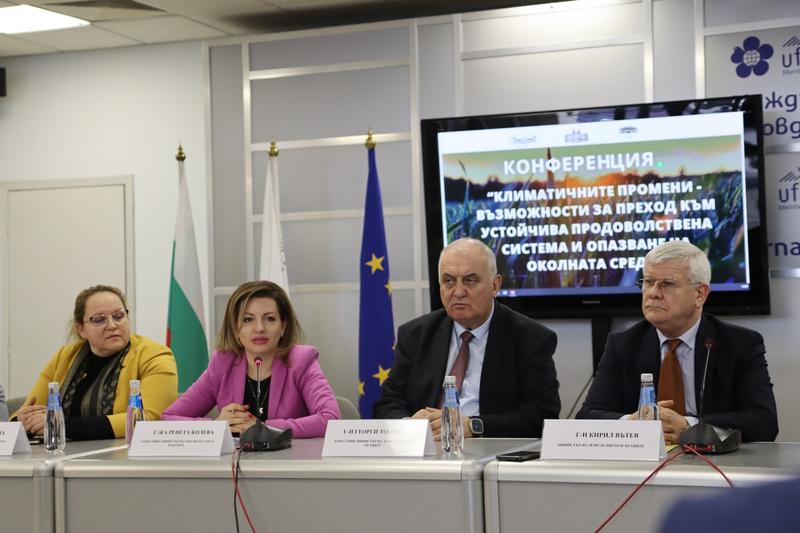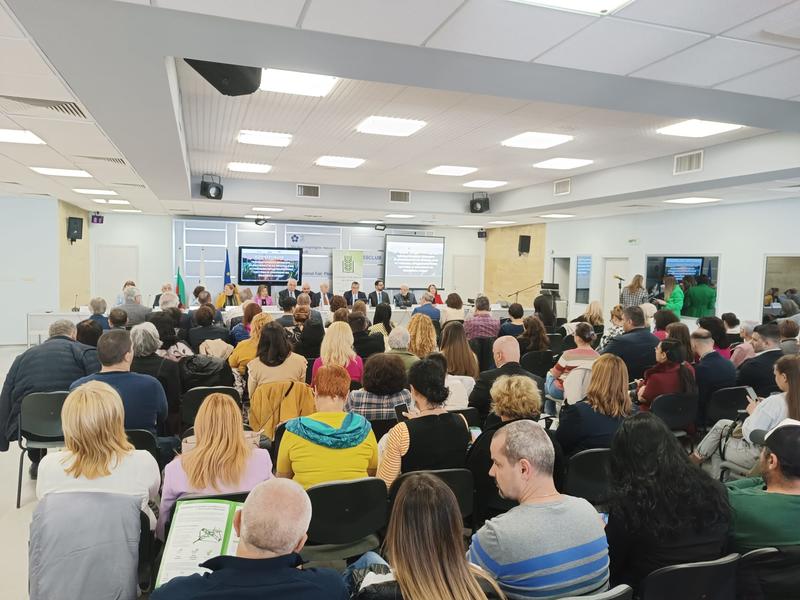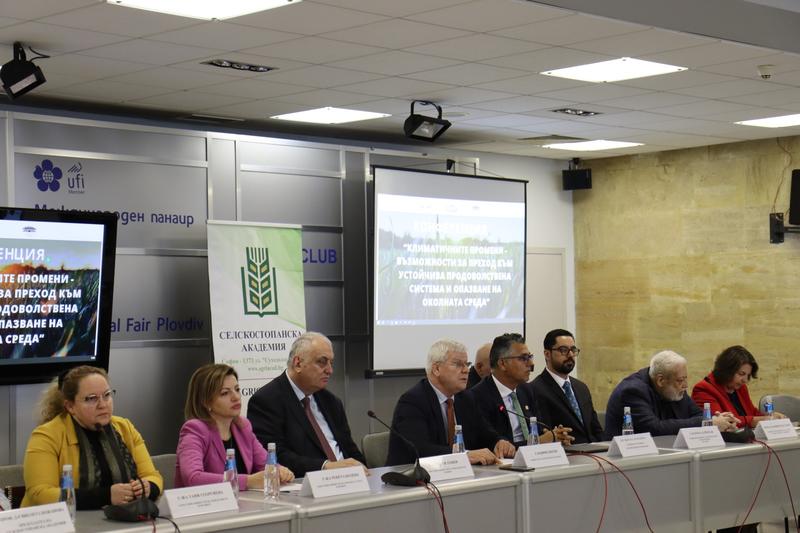Deputy Minister Reneta Koleva: Prevention is a key priority for adapting agriculture and forestry to climate change
22 Feb, 2024 | 18:00"Preventive measures to tackle the challenges of climate change must be our top priority. We need to adapt and make our agriculture and forestry much more resilient". This was stated by the Deputy Minister of Environment and Water Reneta Koleva at a conference on the topic "Climate change - opportunities for transition to a sustainable food system and environmental protection" within the framework of the International Agricultural Exhibition "Agra" at the International Fair in Plovdiv.
Deputy Minister Koleva stressed the key role of science, both in exploring how changes in the global climate system affect people, ecosystems and the economy, as well as in finding new approaches and technological solutions to adapt to changing climate realities.
She pointed out that changes in the length of the growing season as pests and diseases spread can affect the volume of basic yields. "Livestock will also be negatively impacted by significant heat stress resulting from increased temperature and humidity. Recurrent intense droughts are likely to increase soil drying. This, combined with warm winds, increases the risk of soil erosion and degradation. At the same time, multiple factors could lead to water scarcity, with consequent increased irrigation needs and adverse impacts on human health, fisheries and aquaculture," explained the Deputy Minister.
Reneta Koleva pointed out that at the same time encouraging natural sinks is equally important, which is closely interlinked with emission reductions and announced that this week a preliminary agreement has been reached between the European Parliament and the Council on the European Regulation establishing a framework for voluntary certification of carbon removals. This framework will stimulate innovative carbon sequestration and carbon capture technologies in agriculture that contribute to the EU's climate, environment and zero pollution targets. "By promoting good agricultural practices - such as the use of cover crops, minimum tillage, proper plant nutrition, active use of effective micro-organisms - we can increase the amount of carbon in the soil and also speed up the process of carbon sequestration," she highlighted and stated that carbon farming not only contributes to restoring degraded land and mitigating climate change, but also helps to protect ecosystems and water resources.
"We need to reduce emissions to mitigate climate change and its adverse impacts on the environment as well as on agriculture and forestry," said Deputy Minister Koleva. If greenhouse gas emissions continue to rise in the future, the Earth's average temperature will rise with up to 4-5°C by the end of the century. "The only way to avoid negative consequences is to achieve net zero emissions," said Koleva.
Minister of Agriculture and Food Kiril Vatev also expressed the position that we should use the potential of science in the search for solutions to the problems that arise with climate change. According to the President of the World Meteorological Organization, Dr. Abdulla Al Mandous, meteorological data confirms climate change towards global temperature change, which is also visible in extreme weather events, including in Bulgaria.
The conference was organized by the Ministry of Agriculture and Food in cooperation with the Agricultural Academy and the Bulgarian Academy of Sciences. It was also attended by the Director of the National Centre for Meteorology and Seismology of Abu Dhabi Omar Al Yazeedi, the President of the Bulgarian Academy of Sciences, acad. Julian Revalski, the Deputy Ministers of Agriculture and Food Tanya Georgieva and Georgi Toshev, the President of the Agricultural Academy prof. Violeta Bozhanova, scientists and NGO representatives.


